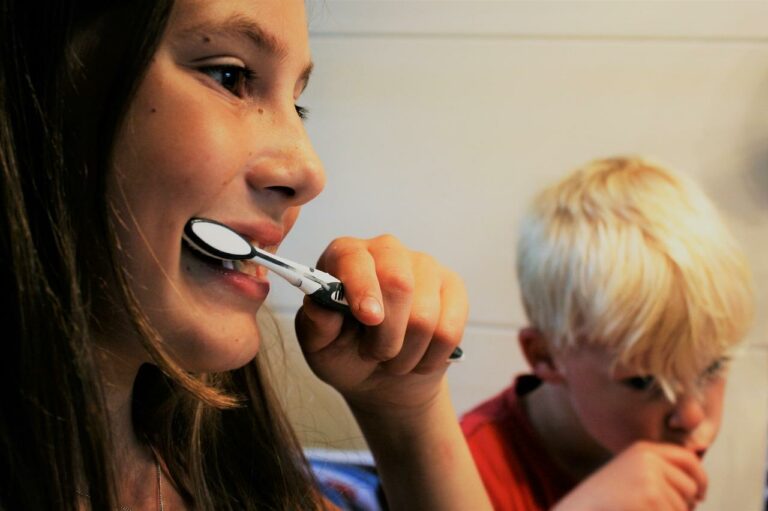7 Signs Your Child Needs Braces: Las Vegas Orthodontist Tips
Braces are an orthodontic treatment that addresses various dental concerns, including crooked teeth, overcrowding, and bite issues. Their core function is to correct tooth and jaw alignment, improving your child’s smile (which can boost their confidence). Braces can also significantly improve your child’s overall quality of life, making things like daily oral care, eating, and speaking easier. These benefits can mean fewer cavities, clearer speech, and even better health.
While you often see young teens wearing braces, indications of potential orthodontic issues can appear much earlier. Here are seven signs your child needs braces.
1. Crooked or Crowded Teeth
One of the easiest ways to know your child needs braces is by looking at their smile as their permanent teeth erupt. Are those teeth coming in crooked, twisted, or overlapping one another? Braces can help guide them into proper alignment.
2. Early or Late Loss of Baby Teeth
Generally, children start losing their baby teeth at the age of five or six and finish by around the age of twelve. While some children may lose their first tooth as early as age four, starting too soon could allow your child’s other teeth to shift into the empty space. That may lead to issues as the adult teeth emerge later.
A child with baby teeth past twelve or thirteen could also cause problems. The permanent teeth below may have trouble erupting correctly, which could lead to crooked teeth or overcrowding.
3. Prolonged Oral Habits
Many children suck their thumbs or use a pacifier in infancy and toddlerhood. These habits can affect how your child’s mouth and teeth develop, especially if they continue past the age of two to four.
4. Mouth Breathing
A child may breathe through their mouth for many reasons, such as the tongue being unable to rest against the roof of the mouth, blocked nasal passageways, or a deviated septum. Regardless of the reason, chronic mouth breathing can affect your child’s oral development and lead to a narrow jaw that’s too small to accommodate their permanent teeth.
5. Jaw or Bite Issues
Various bite issues (overbite, underbite, crossbite, open bite) can affect several aspects of your child’s life. They can make things like eating, speaking, and brushing more difficult. They can also lead to tooth grinding (bruxism), jaw pain, and neck, shoulder, and upper back pain.
6. Difficulty Eating
Crooked teeth, overcrowding, and bite issues, even minor ones, can make biting and chewing food difficult. Not only that, but improper chewing can affect digestion and make it harder for your child’s body to access vital nutrients. If you notice your child struggling to chew (or experiencing pain while chewing), it could be a sign they have an orthodontic problem that may require braces.
7. Speech Problems
Poorly aligned teeth or jaws can result in slurred speech or difficulty pronouncing certain letters and words. As a result, they may be harder to understand or feel self-conscious when talking in school.
Address Your Concerns With a Trusted Las Vegas Orthodontist
Do you suspect your child has a tooth or jaw alignment issue and think they might need braces? Las Vegas orthodontist Dr. Hansen is here to address your concerns and determine the best course of action to give your child a beautiful, healthy, confident smile. Contact Hansen Orthodontics to schedule your consultation today!








